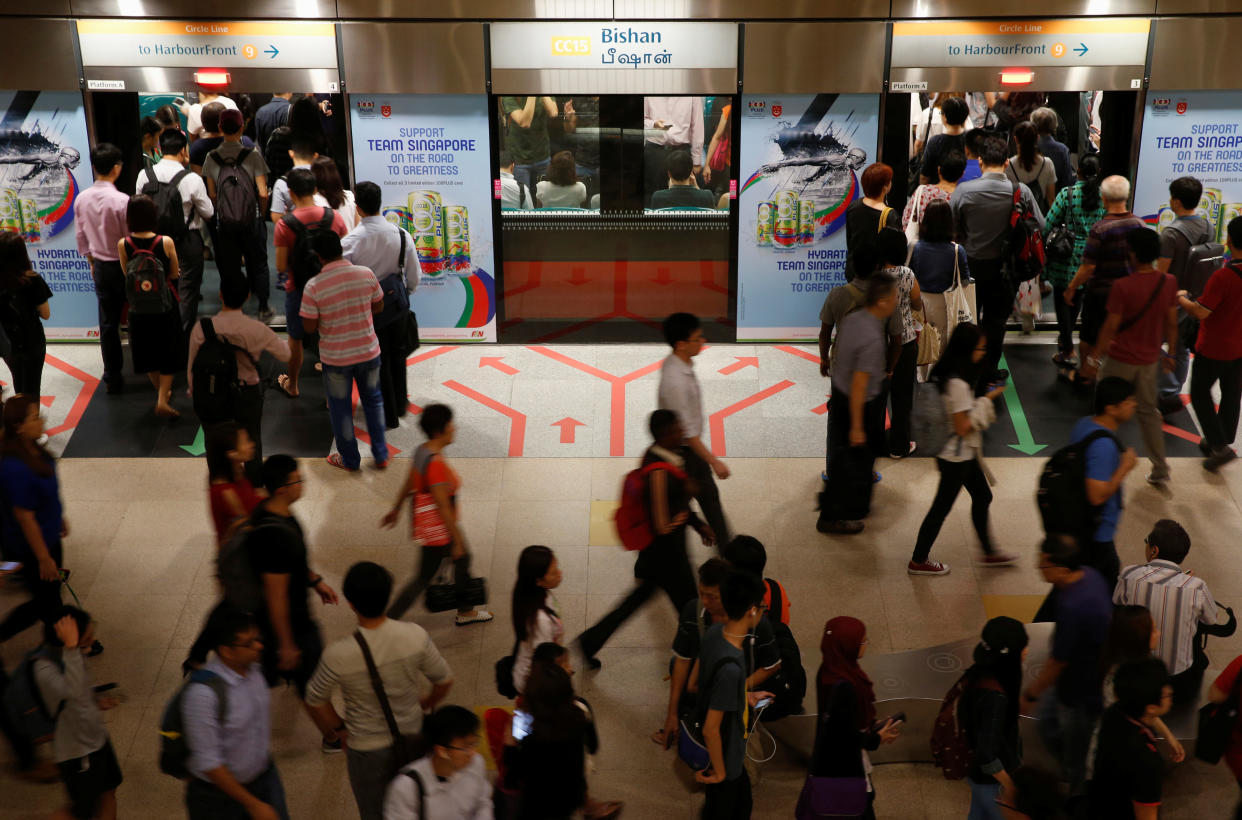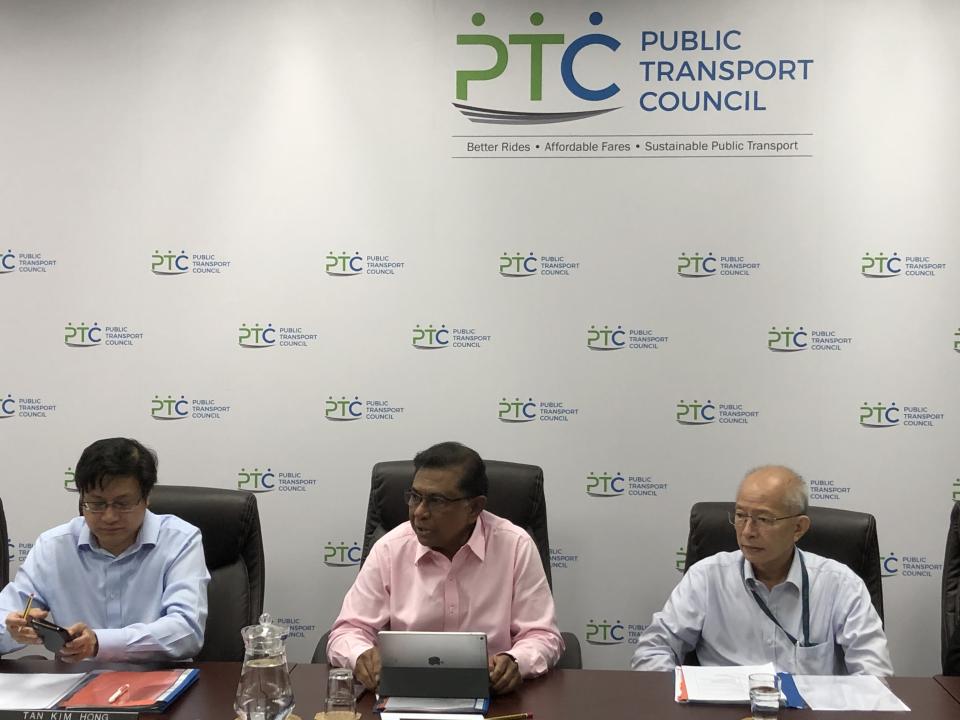Adult card fares to increase by up to 9 cents: Public Transport Council

SINGAPORE — In one of the largest public transport fare increases in recent years, card fares for adults travelling on buses and trains will increase by up to nine cents from 28 December, following the conclusion of the 2019 Fare Review Exercise by the Public Transport Council (PTC).
Increases for senior citizens, lower-wage workers, persons with disabilities and students - representing about 2 million commuters - will be capped at 4 cents. Monthly concession passes for students and full-time national servicemen will also see an increase of between a dollar and $5.50.
The cost of adult monthly travel passes will go up by $8, while cash fares and single trip tickets will see a 20 cent increase.
“I think we have arrived at an equitable, carefully calibrated and delicate balance in our fare decision,” said PTC chairman Richard Magnus at a media briefing on Tuesday (8 October). He was alluding to the need to ensure the long-term financial sustainability of the public transport system, while keeping fares affordable.
The PTC had said last month that fares could increase by up to 7 per cent, in line with the applications by SBS Transit and SMRT Trains to increase fares. Both operators recorded losses for the latest financial year, with the former recording a net loss after tax of $155 million.
In 2018, the PTC recommended an increase of six cents in card fares for adults, while student and senior citizen card fare increases were capped at 1 cent. Bus cash fares for students and senior citizens, as well as monthly concession passes and adult monthly travel passes, remained unchanged then.
With 3.2 million journeys made by adults each day, annual fare revenue is estimated to increase by about $132.5 million. The additional revenue is ultimately channelled to the government and used to offset bus operating subsidies.
Enhanced concessions

For the first time, student concessions will be extended to polytechnic and diploma students. This means that some 80,000 of these students will see fare savings of up to $1.54 per journey, with each fare capped at 63 cents.
To help lower-income groups, authorities will top up the Public Transport Fund by $6 million. It will then be used to disburse some 450,000 Public Transport Vouchers, with the value of each voucher increased from $30 to $50. The eligibility criteria has also been adjusted, so that one in five households - compared to one in 10 previously - will benefit from the vouchers.
SBS Transit and SMRT will also be required to contribute $1.88 million and $2.01 million, respectively, to the Public Transport Fund.
The government will also continue to subsidise close $1 billion per year to renew rail operating assets, and another $1 billion to subsidise bus operations annually. This translates to more than $1 in subsidies for every journey.
Magnus noted that the costs of running public transport have increased, primarily due to the global rise in energy prices, local manpower wages and other macroeconomic factors. “Energy prices, having rebounded 26.2 per cent in 2017, further increased by 32.3 per cent in 2018. The Wage and core Consumer Price Indices in the fare formula have also increased over the past year by 3.5 per cent and 1.7 per cent, respectively.”
The PTC chairman also quoted an April report by the Independent Pricing and Regulatory Tribunal – or IPART – for Sydney in New South Wales, Australia. The report cited Singapore as having the lowest 2km fares when compared with other major cities internationally as well as in Australia.
In response to the PTC’s fare recommendations, Transport Minister Khaw Boon Wan said on Facebook, “In any fare adjustment, we try to keep the increase as low as possible so that it affects as few people as we can. Fortunately, more than half of Singaporeans receive substantial discounts from the normal fare of up to 70 per cent.”
Related stories
Rail reliability improves across entire MRT network: Khaw Boon Wan
Cheap public transport fares 'popular but not sustainable': Khaw Boon Wan
SMRT Trains reports S$155 million net loss for FY2019 amid rising operating expenses



